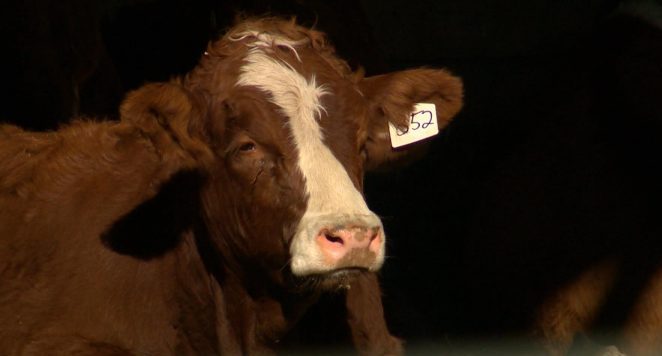Researchers at the University of Saskatchewan have received about $7 million to study how to improve livestock’s health and make farming more environmentally friendly in the province.

The money is for 20 projects, including $3.2 million for seven projects at the university’s Livestock and Forage Centre of Excellence. The money comes from the province’s Agriculture Development Fund, and from “industry partners,” according to the university.
The projects include breeding plants that cattle can more easily digest, and growing better feed for cattle and sheep that would be able to be seeded and grow faster, and potentially produce more food.
Another project involves looking at “high water sulphate” levels in Saskatchewan’s water.
Greg Penner, an associate professor at the University of Saskatchewan, says some of the province’s water isn’t good enough quality for cattle, and it can hurt their abilities to reproduce, along with their general health.
“That really changes how and when producers can use land that is fed with that water because cattle need water.”
Penner’s research involves reevaluating Saskatchewan’s water quality standards and looking at ways to reduce the effects of drinking this water on cows. One answer may come from your medicine cabinet.

Get daily National news
“We’re looking… at the active ingredient within Pepto Bismol, and it might bind to some of the products produced in cattle when they consume high water sulphate,” he explained.
Terry Fonstad, another associate professor at the university, is looking at how to better use manure in feedlots, and how those lots can impact the environment.
He said when cows finish eating, the nutrients from their food need to go back into the field. He’s looking at what methods have less of an environmental impact and are more sustainable.
“The questions are — do we compost it in the pens, do we haul it, does it matter how many cattle you have, what do we do with road damage,” he explained.
“There’s a lot of questions that the cattle folks have for sustainable beef production and then to minimize greenhouse gas emissions and to efficiently turn that fertilizer back to crop again.”

Fonstad said his research will also help with permitting new feedlots in the province in the future, by providing data on where and how they should operate to have the least impact on the environment.
Of the funding, $375,000 will support 10 undergraduate summer research projects a year over five years, according to the University of Saskatchewan.






Comments
Want to discuss? Please read our Commenting Policy first.